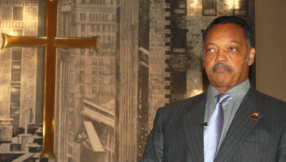It was a highly divisive campaign and, despite the decisive result, division between religious representatives and wider secular society remains and may have even deepened in Australia.
After the news that 61.6 per cent of Australians has voted in favour of legalising same-sex marriage, for many the argument moved on to whether religious small businesses would gain special protections. The conservatives' planned amendments to the bill would allow private businesses to refuse services like wedding cakes for same-sex weddings by objecting on religious grounds.
But some Christian leaders could not hide their disapproval at the overall direction the vote represented in their eyes.
The Catholic Archbishop of Sydney, Anthony Fisher, said he was 'deeply disappointed that the likely result will be legislation to further deconstruct marriage and family in Australia'.
True, the president of the Australian Catholic Bishop's Conference, Denis Hart, struck a more conciliatory note, declaring that Australia's Parliament must work to unify the nation by respecting different views on marriage.
But he reiterated that the Catholic Church 'continues to view marriage as a special union between a woman and a man, which allows for the creation and nurture of children'.
'A change in civil law does not change the Catholic understanding of the nature of marriage,' he said. 'The Catholic Church continues to respect the dignity of LGBTIQ Australians and our ministries will continue to care deeply about the dignity and value of all people we encounter.'
And in an echo of arguments after other referendums around the world, including Brexit, Archbishop Hart added defiantly that parliamentarians must make room for the minority and 'recognise and respect the concerns of the more than 4.8 million Australians who opposed a change to the definition of marriage by putting in place strong conscience and religious freedom protections.
'These protections must ensure that Australians can continue to express their views on marriage, that faith-based schools can continue to teach the traditional understanding of marriage and that organisations can continue to operate in a manner that is consistent with those values.'
In classic style, the Anglican response was more compromising. Sydney's Anglican Archbishop Glenn Davies said that there must be freedom of speech, conscience and belief for Christians and others who disagree with same-sex marriage.
But he said it is 'quite proper' for the parliament to legislate for same-sex marriage 'in accordance with the will of the people', though '[that] doesn't mean I will change my views'.
He went on: 'I will still continue to teach that marriage is, in God's plan, between a man and a woman. But I acknowledge that once the parliament passes those laws, that will no longer be the law of the land.'
Davies added that he had concerns about parliament ensuring the ability for religious organisations to hold different views from the majority. 'Therefore what the parliament needs to do now, in legislating for same-sex marriage, is to do so in a way which protects people's liberties,' he said.
The voluntary poll is non-binding but Prime Minister Malcolm Turnbull immediately said he would fulfil a pledge to raise a bill in parliament with the aim of passing laws by Christmas.
Turnbull played down concerns of a split in his coalition government over the policy as the conservative faction presses for amendments to protect religious freedoms that discriminate against same-sex couples.
'It is unequivocal, it is overwhelming. They have spoken in their millions and they have voted overwhelmingly yes for marriage equality,' Turnbull told reporters in Canberra after the survey results were announced. 'They voted yes for fairness, yes for commitment, yes for love.'
The result marks a watershed moment for gay rights in Australia, where it was illegal in some states to engage in homosexual activity until 1997.
Almost 80 per cent of the country's eligible voters took part in the survey, which was a higher voter turnout than Britain's Brexit vote and Ireland's same-sex marriage referendum.
Turnbull, under pressure amid a citizenship crisis that has cost him his deputy and the government's majority in parliament, finds his leadership tested again as the marriage equality bill enters parliament, possibly as early as later on Wednesday.
But political analysts said the resounding 'yes' vote presented Turnbull with his first opportunity in months to exert decisive control. At least one of the conservative lawmakers has announced plans to switch to supporting the legislation, given the strength of the public vote.
Nick Economou, a political scientist at Monash University, said Turnbull 'should feel emboldened by the result and this is the sort of thing he has been looking for to show some assertive leadership'.
Additional reporting by Reuters.













